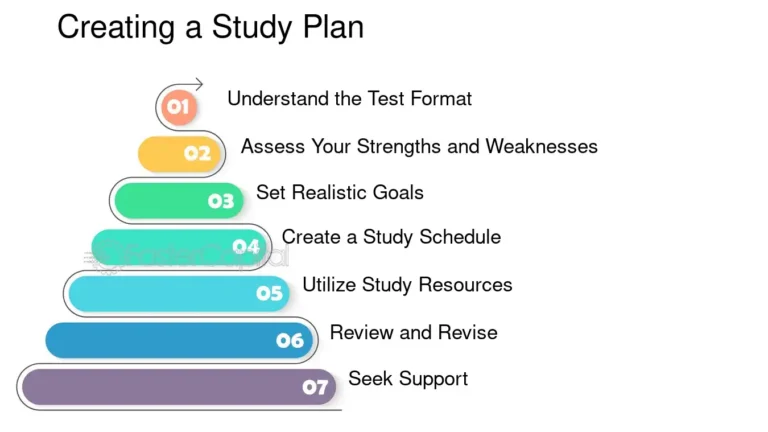5 Essential Habits to Crack the UPSC Exam: A Step-by-Step Guide
Cracking the UPSC Civil Services Examination is a challenging yet rewarding journey. The exam demands not only hard work but also the right approach, consistency, and discipline. If you are preparing for the UPSC exam or planning to start, incorporating certain habits into your routine can significantly improve your chances of success. In this blog, we will discuss five key habits that will help you crack the UPSC exam with confidence and clarity.
1. Follow a Regular and Structured Study Routine

One of the most crucial habits in UPSC preparation is having a structured study routine. The syllabus is vast and can easily overwhelm you, but a clear and organized study plan will guide you through it step by step.
Why it works:
A well-planned routine ensures you cover all subjects efficiently while also leaving room for revision. It helps you manage your time better and stay focused on what needs to be done each day.
How to implement it:
Create a study schedule that includes daily, weekly, and monthly goals. Prioritize subjects based on their weightage and your comfort level. Be sure to include time for General Studies (GS), Optional subjects, and Current Affairs. Consistency is key, so try to stick to the schedule as closely as possible. Don’t forget to plan regular revision slots to keep previously studied material fresh in your memory.
2. Read the daily news paper and current affairs

Current affairs play a pivotal role in the UPSC exam, particularly for the Prelims and Mains. Regularly reading newspapers will not only enhance your knowledge but also help you build an analytical approach to national and global events.
Why it works:
UPSC expects you to have a solid understanding of what’s happening around you, and most of the questions in both Prelims and Mains are based on current events. Newspaper reading also improves your ability to write insightful essays and answers in the exam.
How to implement it:
Pick up a reputed newspaper like The Hindu or The Indian Express daily. Focus on editorials, important national and international issues, government policies, and socio-economic developments. Maintain a current affairs notebook where you can jot down key points, facts, and figures. This will be a valuable resource for quick revision closer to exam day.
3. Make Active Notes and Revise Regularly

With the vast syllabus of the UPSC exam, active note-making is one of the most effective ways to retain information and organize your thoughts. Notes help in summarizing key topics in a concise manner and serve as a great revision tool.
Why it works:
Note-making helps you understand complex topics and makes them easier to revise later. Regular revision is crucial, as the UPSC syllabus requires retention over a long period. Your notes act as a guide during the final stages of preparation.
How to implement it:
As you study, focus on writing down important concepts in your own words. Avoid copying text verbatim; instead, summarize key ideas. Organize your notes by topics, and use bullet points, diagrams, or charts to simplify complex ideas. Dedicate time each week to revise these notes, ensuring that you’re familiar with the most important concepts right before the exam.
.
4. Practice Self-Assessment and Take Mock Tests

Another vital habit for UPSC success is regular self-assessment. This involves practicing with mock tests to evaluate your preparation level and identify areas for improvement.
Why it works:
Mock tests simulate the exam environment, which helps you improve your time management, boost your confidence, and assess your strengths and weaknesses. They also familiarize you with the exam pattern and reduce the pressure on the actual exam day.
How to implement it:
Incorporate mock tests for both Prelims and Mains into your study routine. Set aside time to take full-length mock exams under timed conditions. After completing a mock test, spend time analyzing your performance—look at the areas where you lost marks and focus on improving them. For Mains, practice answer writing to develop clarity, structure, and coherence in your responses
5. Maintain a Balanced Lifestyle and Manage Stress

UPSC preparation is a long and arduous process, and it’s easy to get burnt out. Maintaining a balanced lifestyle is critical to staying productive, focused, and healthy throughout your preparation.
Why it works:
Stress, lack of sleep, and an unhealthy routine can negatively impact your performance. A balanced lifestyle ensures that you stay physically and mentally fit, which helps you maintain a positive attitude and stay motivated.
How to implement it:
Incorporate regular breaks into your study routine. Engage in activities like exercise, yoga, or even a simple hobby to relax your mind. Get enough sleep every night (7–8 hours), and ensure that your diet is nutritious and balanced. Meditation and mindfulness practices can also help manage stress, improve concentration, and keep you calm under pressure.
Bonus Tip: Stay Consistent and Be Patient
Consistency and patience are the cornerstones of UPSC success. It’s important to remember that cracking the UPSC exam doesn’t happen overnight. It requires months, if not years, of consistent effort, and the journey can sometimes be frustrating.
How to stay on track:
Embrace the process, and trust in the work you’re putting in. Set realistic goals, monitor your progress, and adjust your approach as needed. Stay patient, and don’t let setbacks discourage you. Perseverance and a positive mindset will help you stay on the path toward success.
Conclusion: Habits that Lead to Success
UPSC preparation is a marathon, not a sprint. By adopting these five habits—following a structured study routine, staying updated with current affairs, making effective notes, practicing mock tests, and maintaining a balanced lifestyle—you’ll be well on your way to cracking the exam.
Remember, success in the UPSC exam comes from a combination of hard work, consistency, and a clear strategy. Stay focused, keep improving, and trust the process. You’ve got this!
If you found these tips helpful, share them with fellow aspirants, and feel free to drop any questions in the comments below!
